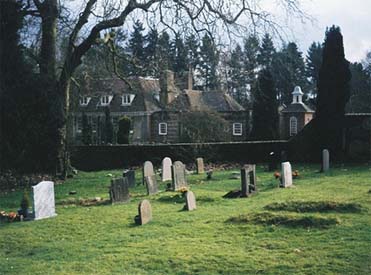Anthem for Doomed Youth 青春挽歌by Wilfred Owen(MP3+双语)

Wilfred Owen (维尔浮莱德.欧文),反战诗人于25岁英年早逝Owen生于1893年3月18日。虽然一直自视为反战份子,Owen仍于1915年10月入伍,并受阶为中尉。他于1917年1月加入法国曼彻斯特军团。在法国其间,Owen开始将他的战争经验写成诗篇。 1915年夏天Owen因为被诊断患有弹震击(战争精神病的一种)而遣返英国。在休养复原其间,Owen遇到诗人Siegfried Sassoon (席格佛烈.沙森),指导并鼓励其写作,同一时期的作家还有Robert Graves (劳勃.格瑞夫)。在接着的几个月里Owen写下了一系列的诗篇,包括Anthem for Doomed Youth (青春挽歌)、Disabled (残)、Dulce et Decorum Est (为国捐躯) 、以及Strange Meeting (不可思议的聚会)。 1918年8月Owen返回其被授与十字勋章的西线战场。 1918年11月4日,当Owen领军横越Sambre运河时,遭机关枪扫射身亡。一周后,停战协定被签订。
Anthem for Doomed Youth 青春挽歌 带中文翻译:
What passing-bells for these who die as cattle?
Only the monstrous anger of the guns.
Only the stuttering rifles' rapid rattle
Can patter out their hasty orisons.
什麼样的丧钟,为那番惨死的人们响起?
只有毛骨悚然的短枪怒吼之声
只有喋喋不休的长枪结巴之声
可以仓促叨念出他们的死前祈祷
No mockeries for them;no prayers nor bells,
Nor any voice of mourning save the choirs, ——
The shrill, demented choirs of wailing shells;
And bugles calling for them from sad shires.
没有虚伪的颂经,也没有祈祷和教堂钟声
没有哀悼的歌声,也省却丧礼的合唱诗班
嚎啕痛哭的炮弹,尖锐疯狂地齐声共鸣
悲哀的碉堡中,传出号令他们冲锋与撤退的军号
What candles may be held to speed them all?
Not in the hands of boys, but in their eyes
Shall shine the holy glimmers of goodbyes.
什麼样的烛光,可能拿来催促他们启程出征呢?
并不在男孩的手里,而在他们的眼睛里
闪耀著神圣光辉的道别
The pallor of girls' brows shall be their pall;
Their flowers the tenderness of patient minds,
And each slow dusk a drawing-down of blinds.
女孩面容的苍白,将是他们洁白的棺布
家人温柔的忍耐,将是他们优美的丧花
(前线上日日送死,前仆后继)大后方日日垂暮,下帘吊丧
诗歌注释:
1 Anthem - perhaps best known in the expression "The National Anthem;" also, an important religious song (often expressing joy); here, perhaps, a solemn song of celebration 1国歌-最出名的可能是在表达“国歌” ;另外,一个重要的宗教歌曲(通常表达喜悦) ;在这里,也许,一个庄严的回归颂
2 passing-bells - a bell tolled after someone's death to announce the death to the world 2结业钟声-钟钟声后,某人的死亡宣布死亡世界
3 patter out - rapidly speak 3胡言乱语了-迅速发言
4 orisons - prayers, here funeral prayers 4 orisons -祈祷,祈祷在这里葬礼
5 mockeries - ceremonies which are insults. 5 mockeries -仪式这是侮辱。 Here Owen seems to be suggesting that the Christian religion, with its loving God, can have nothing to do with the deaths of so many thousands of men这里欧文似乎暗示基督教派,其热爱的上帝,可没有任何关系的死亡,使成千上万的男人
6 demented - raving mad 6疯狂-疯
7 bugles - a bugle is played at military funerals (sounding the last post) 7军号-一个号角发挥军事葬礼(探空过去后)
8 shires - English counties and countryside from which so many of the soldiers came 8夏尔斯-英语县和乡村从如此多的士兵
9 candles - church candles, or the candles lit in the room where a body lies in a coffin 9蜡烛-教堂蜡烛,或点燃蜡烛的房间里的一个机构是棺材
10 pallor - paleness 10苍白-苍白
11 dusk has a symbolic significance here 11日黄昏了这里的象征意义
12 drawing-down of blinds - normally a preparation for night, but also, here, the tradition of drawing the blinds in a room where a dead person lies, as a sign to the world and as a mark of respect. 12绘图式的百叶窗-通常是准备晚上,而且,在这里,传统的绘画窗帘在房间里死的人的谎言,作为一个符号,作为世界的尊重。 The coming of night is like the drawing down of blinds.夜晚的到来就像是取用百叶窗。
Wilfred Owen (维尔浮莱德.欧文),反战诗人于25岁英年早逝Owen生于1893年3月18日。虽然一直自视为反战份子,Owen仍于1915年10月入伍,并受阶为中尉。他于1917年1月加入法国曼彻斯特军团。在法国其间,Owen开始将他的战争经验写成诗篇。 1915年夏天Owen因为被诊断患有弹震击(战争精神病的一种)而遣返英国。在休养复原其间,Owen遇到诗人Siegfried Sassoon (席格佛烈.沙森),指导并鼓励其写作,同一时期的作家还有Robert Graves (劳勃.格瑞夫)。在接着的几个月里Owen写下了一系列的诗篇,包括Anthem for Doomed Youth (青春挽歌)、Disabled (残)、Dulce et Decorum Est (为国捐躯) 、以及Strange Meeting (不可思议的聚会)。 1918年8月Owen返回其被授与十字勋章的西线战场。 1918年11月4日,当Owen领军横越Sambre运河时,遭机关枪扫射身亡。一周后,停战协定被签订。
Anthem for Doomed Youth 青春挽歌 带中文翻译:
什麼样的丧钟,为那番惨死的人们响起?
只有毛骨悚然的短枪怒吼之声
只有喋喋不休的长枪结巴之声
可以仓促叨念出他们的死前祈祷
没有虚伪的颂经,也没有祈祷和教堂钟声
没有哀悼的歌声,也省却丧礼的合唱诗班
嚎啕痛哭的炮弹,尖锐疯狂地齐声共鸣
悲哀的碉堡中,传出号令他们冲锋与撤退的军号
什麼样的烛光,可能拿来催促他们启程出征呢?
并不在男孩的手里,而在他们的眼睛里
闪耀著神圣光辉的道别
女孩面容的苍白,将是他们洁白的棺布
家人温柔的忍耐,将是他们优美的丧花
(前线上日日送死,前仆后继)大后方日日垂暮,下帘吊丧
诗歌注释:
1 Anthem - perhaps best known in the expression "The National Anthem;" also, an important religious song (often expressing joy); here, perhaps, a solemn song of celebration 1国歌-最出名的可能是在表达“国歌” ;另外,一个重要的宗教歌曲(通常表达喜悦) ;在这里,也许,一个庄严的回归颂
2 passing-bells - a bell tolled after someone's death to announce the death to the world 2结业钟声-钟钟声后,某人的死亡宣布死亡世界
3 patter out - rapidly speak 3胡言乱语了-迅速发言
4 orisons - prayers, here funeral prayers 4 orisons -祈祷,祈祷在这里葬礼
5 mockeries - ceremonies which are insults. 5 mockeries -仪式这是侮辱。 Here Owen seems to be suggesting that the Christian religion, with its loving God, can have nothing to do with the deaths of so many thousands of men这里欧文似乎暗示基督教派,其热爱的上帝,可没有任何关系的死亡,使成千上万的男人
7 bugles - a bugle is played at military funerals (sounding the last post) 7军号-一个号角发挥军事葬礼(探空过去后)
8 shires - English counties and countryside from which so many of the soldiers came 8夏尔斯-英语县和乡村从如此多的士兵
9 candles - church candles, or the candles lit in the room where a body lies in a coffin 9蜡烛-教堂蜡烛,或点燃蜡烛的房间里的一个机构是棺材
10 pallor - paleness 10苍白-苍白
11 dusk has a symbolic significance here 11日黄昏了这里的象征意义
12 drawing-down of blinds - normally a preparation for night, but also, here, the tradition of drawing the blinds in a room where a dead person lies, as a sign to the world and as a mark of respect. 12绘图式的百叶窗-通常是准备晚上,而且,在这里,传统的绘画窗帘在房间里死的人的谎言,作为一个符号,作为世界的尊重。 The coming of night is like the drawing down of blinds.夜晚的到来就像是取用百叶窗。

What passing-bells for these who die as cattle?
Only the monstrous anger of the guns.
Only the stuttering rifles' rapid rattle
Can patter out their hasty orisons.
No mockeries for them;no prayers nor bells,
Nor any voice of mourning save the choirs, ——
The shrill, demented choirs of wailing shells;
And bugles calling for them from sad shires.
What candles may be held to speed them all?
Not in the hands of boys, but in their eyes
Shall shine the holy glimmers of goodbyes.
The pallor of girls' brows shall be their pall;
Their flowers the tenderness of patient minds,
And each slow dusk a drawing-down of blinds.
6 demented - raving mad 6疯狂-疯
 六年级上册英语书
六年级上册英语书 高二必修4英语书
高二必修4英语书 五年级上册英语书
五年级上册英语书 四年级下册英语书
四年级下册英语书 四年级上册英语书
四年级上册英语书 三年级下册英语书
三年级下册英语书